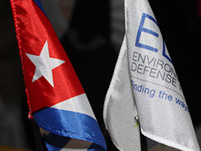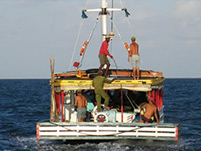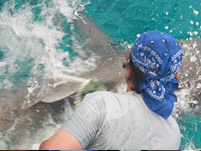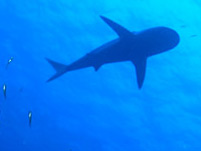Securing a sustainable future for Cuba’s fisheries
A partnership with Cuban stakeholders founded in science
Cuba's magnificent coral reefs, seagrass beds and mangrove forests teem with marine life — including sea turtles, many species of reef fish, sharks, dolphins and manatees. Fishing is vital to the nation's economy and local livelihoods, as reflected in its new fisheries law. However, 60% or more of its commercially valuable fish stocks are already in critical condition and further threatened by climate change.
Our work in Cuba

EDF's history in Cuba »
Since 2000, EDF has been one of the few U.S. organizations that have built the strong local relationships essential to success. Our scientists supported Cuban colleagues in the design of a nationwide network of more than 100 marine protected areas and have partnered with Cuba's leading marine scientists, conservationists and fishing communities to address other issues as well.

Focus on sustainable fishing »
Any strategy to secure healthy and resilient marine ecosystems in Cuba requires getting fisheries right. Fisheries pose the greatest short-term threat to these ecosystems. They also present the best opportunity to build science-based policies, strong management institutions and support local livelihoods. Improving fisheries now means Cuba will be better equipped to face the challenges of climate change over the coming years.

Protecting sharks »
EDF and our partners are studying sharks in Cuban waters and have helped develop and implement the first-ever National Plan of Action for Shark Conservation and Management. This plan includes harvest controls, protected areas and management tools designed to safeguard this top-predator animal essential for healthy marine ecosystems.

Marine protected areas »
Over two decades, EDF has worked with Cuban scientists and managers to identify the most important marine habitats for conservation and strategies for coastal zone management. Today, Cuba is more than halfway to their goal, with more than 100 MPAs established representing nearly 25% of its marine area, and they are continuing on their way.










